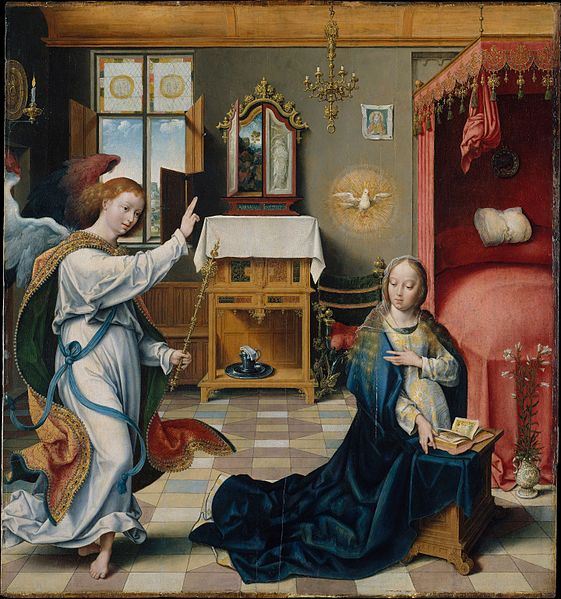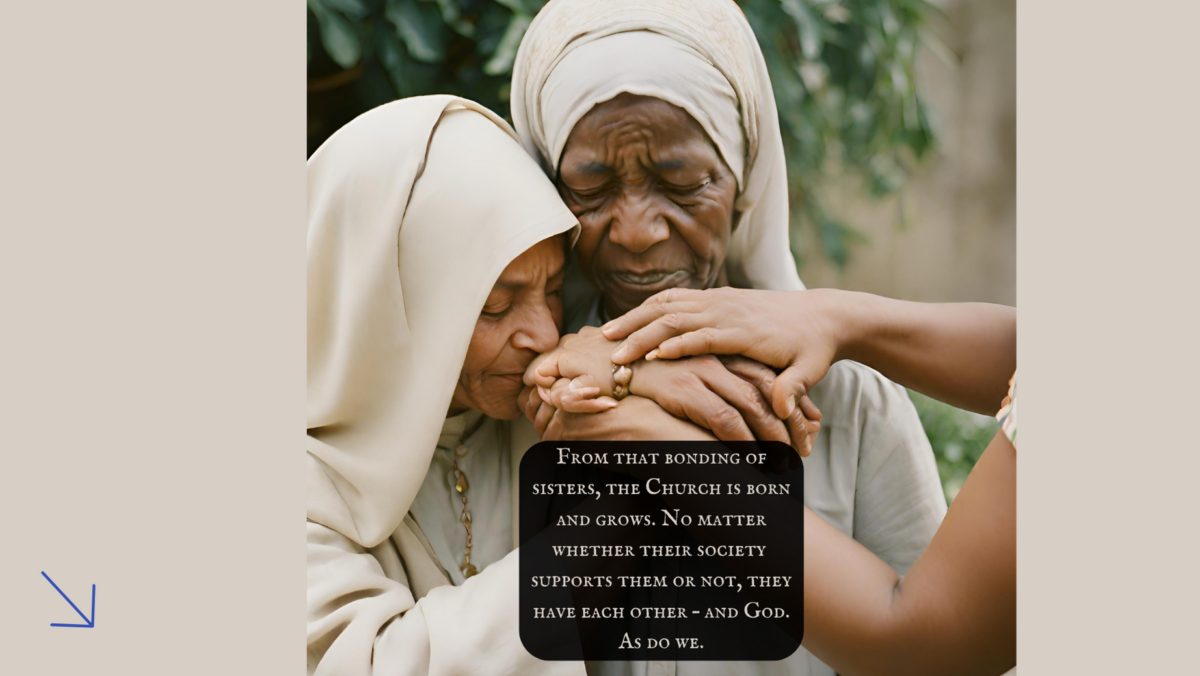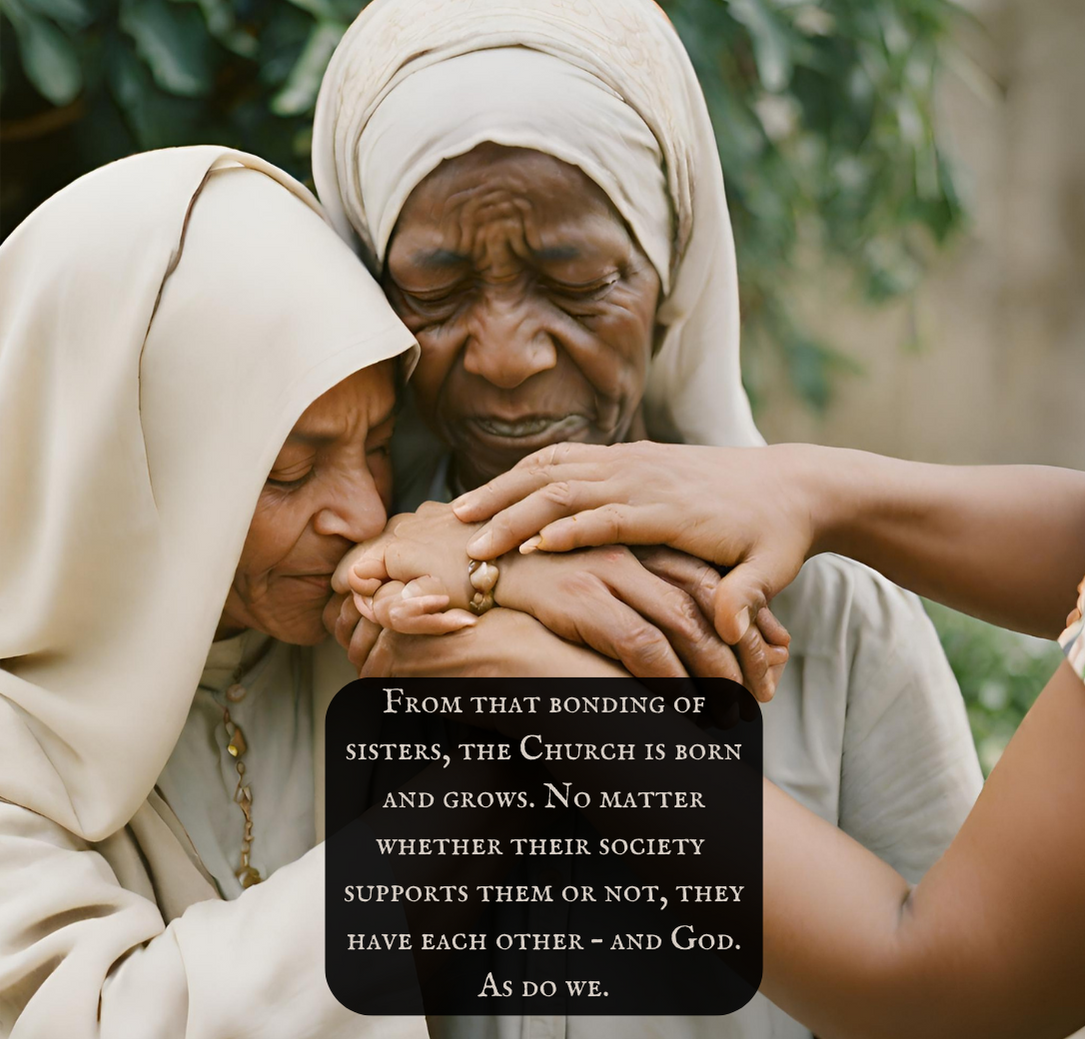FROM NOBODY TO EMBODIED WITH GOD
Luke 1:26-38
Fourth Sunday of Advent
Analysis by Paul G. Theiss
26 In the sixth month the angel Gabriel was sent by God to a town in Galilee called Nazareth, 27to a virgin engaged to a man whose name was Joseph, of the house of David. The virgin’s name was Mary. 28And he came to her and said, “Greetings, favored one! The Lord is with you.” 29But she was much perplexed by his words and pondered what sort of greeting this might be. 30The angel said to her, “Do not be afraid, Mary, for you have found favor with God. 31And now, you will conceive in your womb and bear a son, and you will name him Jesus. 32He will be great, and will be called the Son of the Most High, and the Lord God will give to him the throne of his ancestor David. 33He will reign over the house of Jacob forever, and of his kingdom there will be no end.” 34Mary said to the angel, “How can this be, since I am a virgin?” 35The angel said to her, “The Holy Spirit will come upon you, and the power of the Most High will overshadow you; therefore the child to be born will be holy; he will be called Son of God. 36And now, your relative Elizabeth in her old age has also conceived a son; and this is the sixth month for her who was said to be barren. 37For nothing will be impossible with God.” 38Then Mary said, “Here am I, the servant of the Lord; let it be with me according to your word.” Then the angel departed from her.
Setting: Verses 26 and 27. Nazareth, a collection of huts in a cleft overlooking the Jezreel Valley, the highway of armies. In the distance looms Megiddo, the mountain of battle. Some of Mary’s neighbors may be arming themselves for a suicidal rebellion against Rome. “Engaged” is a misleading translation – she is enmeshed in a net of patriarchy, an object in a marriage contract between families. She has been transferred from the power of the men in her birth family to the lordship of Joseph.

The Annunciation – Joos van Cleve (circa 1485 – 1540/1541)
From Wikimedia Commons
“God’s gift of faith does its marvelous work in Mary, as it does in us.”
Diagnosis: SET ASIDE
Step 1: Initial Diagnosis (External Problem): Alienated
Mary is a nobody, living nowhere. She remembers the promises given to her people, but in her daily reality they may seem like remote dreams from the past. Like many of us, the forces that shape her life and the life of her people are disconnected from her present needs and hopes.
Step 2: Advance Diagnosis (Internal Problem): Accosted
In a flash, Mary’s past, present and future come together in a new reality, the angel’s appearance. Gabriel’s first word is a blessing, but its suddenness and power plunge her into bewilderment, push her toward a crisis of faith. Do we also hear the Word in our own bewilderment, our own crisis of faith?
Step 3: Final Diagnosis (Eternal Problem): Abashed
Gabriel’s grace-filled explanation becomes an inescapable challenge. “You WILL conceive in your womb and bear a son… He WILL be great.” Mary’s fate is now pivotal to her people’s future, indeed to all peoples’ future. There is a great gap between our own abashed, ashamed, and humiliated lives and the presence of God. She struggles to make sense of it: “How can this be, since I am a virgin?” How could I possibly be so much a part of God’s program?
Prognosis: LEADING THE WAY
Step 4: Initial Prognosis (Eternal Solution): Accredited and Appointed
Gabriel expands and makes concrete the Gospel message. God will be her protector, shielding and overshadowing her. God is and will be her power. God’s past, present and future come together, literally, in her.
She holds the infant who holds the world in his hands. This child bears our shame and humiliation, even unto death, with his own outstretched hands upon the cross. And through his bearing, we are freed to be bearers of his promise – unashamed, accredited, make whole.
Step 5: Advanced Prognosis (Internal Solution): Awake and Alive
Because of the promise of this precious child, Mary can do this. God’s gift of faith does its marvelous work in Mary, as it does in us. “Let it be with me according to your word.” In Greek it’s an optative, a wish that brings the future into being. Mary the Marginalized becomes Mary the Revolutionary, as she sings a few verses later in the Magnificat. Her acceptance of the Gospel brings with it suffering and new life: the crisis and joy of childbirth, the death and resurrection of her son.
Step 6: Final Prognosis (External Solution): Allied and Attuned
Mary is not alone in this. She takes her place as a founding member of a nourishing community of faith. Gabriel reveals that she has company, her relative Elizabeth, whom Mary will soon visit. Two miraculous pregnancies lead to a third miracle, the Spirit’s connection of God’s people in loving relationship.
From that bonding of sisters, the Church is born and grows. No matter whether their society supports them or not, they have each other – and God. As do we.





You must be logged in to post a comment.